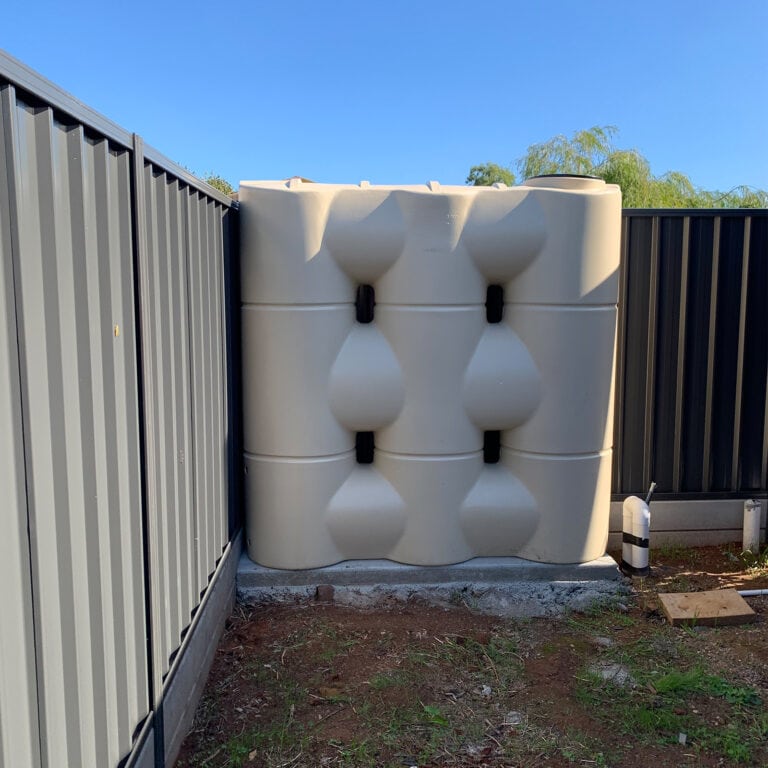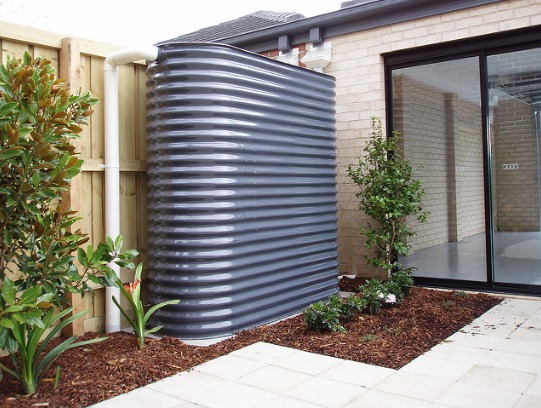Exploring the Numerous Uses of Rainwater Containers for Residential and Commercial Qualities
As the international focus on sustainable living practices continues to escalate, the application of rain containers in both residential and commercial setups has emerged as an essential option. The diverse usages of rain storage tanks present a compelling case for their adoption, not only as a practical water-saving procedure yet additionally as a testimony to liable resource monitoring.
Advantages of Utilizing Rain Containers
Making use of rain containers uses various advantages for both households and areas in regards to water conservation and sustainability. One of the key advantages of utilizing rain containers is the substantial reduction in dependence on keys water - Slimline water tanks. By catching and storing rain for later use, individuals and neighborhoods can decrease their demand for treated water, inevitably relieving the concern on water therapy facilities and reducing power usage related to water transport and therapy
In addition, rain gathering via tanks provides a reputable different water source during times of water restrictions or scarcities. This stored rainwater can be made use of for various non-potable functions such as watering, flushing bathrooms, and cleaning clothes, minimizing the strain on conventional water resources. In addition, using rain containers can bring about cost savings for both families and areas by lowering water expenses and reducing the demand for costly facilities growths to fulfill expanding water demands.
In essence, the use of rain containers offers a sustainable and eco-friendly strategy to water management, benefiting both individual users and the wider area in regards to water conservation, cost-efficiency, and resilience.
Rainwater Tank Usage in Irrigation
Provided the advantages of rain containers in conserving water resources and lowering reliance on mains water supply, a considerable application hinges on utilizing kept rain for watering objectives - Slimline water tanks. Rainwater harvesting systems can efficiently gather and store rainwater, offering a lasting water resource for sprinkling yards, grass, and farming areas. By utilizing rain for watering, homeowner can lower their dependancy on cured water resources, bring about set you back financial savings and ecological benefits

Among the primary benefits of utilizing rain for irrigation is its purity. Rain is naturally soft and devoid of the chemicals and additives typically found in keys water, making it perfect for beneficial plants without the risk of unsafe impacts. Additionally, rain goes to ambient temperature, which can profit plant growth by avoiding temperature level shocks that can accompany cold keys water.
Rain Containers for Bathroom Flushing

Executing rain storage tanks for bathroom flushing is an affordable and eco-friendly practice that can be conveniently integrated right into both property and commercial properties. The kept rainwater can be made use of to flush commodes by connecting the container to the existing plumbing system. This straightforward yet efficient solution can substantially decrease water intake in a building, particularly in locations where water deficiency is a worry.

Including Rain Containers in Landscape Design
These storage tanks can capture i thought about this and save rainwater drainage from roof coverings, which can then be made use of for sprinkling gardens, lawns, and plants. By using rain for irrigation objectives, residential property owners can lower their reliance on local water sources, leading to cost financial savings and conservation of priceless water resources.
Along with providing a lasting water resource for landscaping demands, rain tanks can additionally help in handling stormwater drainage. By recording rainwater that would certainly or else flow right into tornado drains, these storage tanks can minimize erosion, minimize flooding threats, and prevent contamination of all-natural water bodies. Furthermore, integrating rain containers in landscaping can add to the total visual appeal of the property, showcasing a dedication to environmental stewardship.
Commercial Applications of Rainwater Storage Tanks
Utilizing rainwater tanks in commercial settings offers a sustainable remedy for water monitoring and preservation, profiting organizations and the setting alike. One crucial industrial use is for irrigation objectives, where collected rain can be utilized to water landscaping, gardens, and agricultural areas bordering industrial homes.
Additionally, rainwater tanks can be integrated right into the fire reductions systems of commercial buildings. By having a committed water resource for firefighting purposes, businesses can boost read the article their fire precaution and potentially lower insurance coverage premiums. In addition, rainwater accumulated in storage tanks can be treated and utilized for non-potable purposes within business residential properties, such as flushing bathrooms, cleansing, and cooling down systems. This not only conserves fresh water resources yet likewise decreases operating prices for companies. In general, the consolidation of rainwater containers in commercial setups presents a functional and eco accountable strategy to water management.
Conclusion
In final thought, rain containers offer various advantages for both household and commercial homes. From watering to commode flushing and landscape design, using rain storage tanks can aid conserve water resources and minimize water costs. Furthermore, integrating rainwater containers in industrial settings can cause significant cost savings and environmental benefits. Overall, the flexibility and sustainability of rainwater tanks make them a valuable investment for any homeowner wanting to enhance water effectiveness.